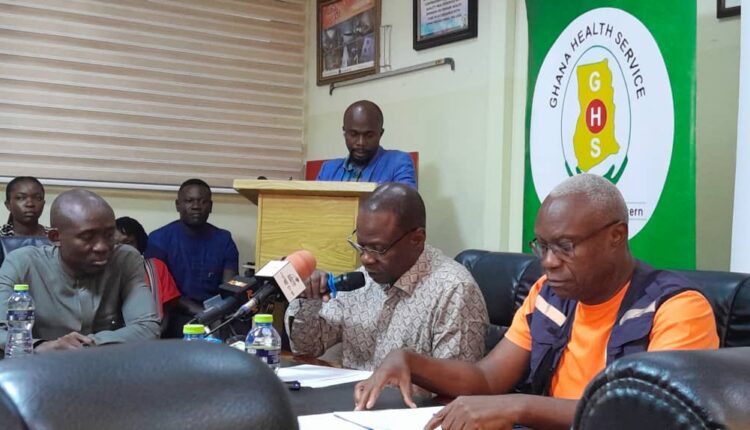The Ghana Health Service (GHS) has officially launched the oral cholera vaccine as part of a strategic initiative to curb the spread of cholera in the country.
This intervention follows the recent outbreak that has claimed 21 lives, with the Central Region, particularly Awutu Senya East, identified as a hotspot.
The vaccination campaign will begin today [Saturday, November 30], in Awutu Senya East, targeting three sub-districts within the region.
A phased rollout strategy will involve vaccination teams visiting homes, workplaces, religious gatherings, and other social events to ensure widespread coverage. Mobile teams will also operate in health centres and hospitals to reach as many people as possible.
Speaking to the press on Friday, November 29, the Director-General of the GHS, Dr. Patrick Kuma-Aboagye, stated that integrating vaccination with existing preventive measures such as improved sanitation and access to clean water is important.
“While the cholera vaccine presents an additional approach for cholera prevention and control, it does not replace priority measures such as proper sanitation and access to safe drinking water.”
He stressed the need to take up hygiene practices, including frequent handwashing with soap under running water, consuming freshly cooked food, and keeping surroundings clean.
The oral cholera vaccine will be administered to all persons aged two years and above, excluding pregnant and breastfeeding women.
The vaccine, endorsed by the Food and Drugs Authority, has been deemed safe and effective. The GHS has also committed to monitoring its impact throughout the campaign.
Dr Kuma-Aboagye called on parents and caregivers to ensure their children are vaccinated while urging journalists to act as ambassadors for immunisation by disseminating accurate information about the vaccine and its benefits.
The Ghana Health Service also announced the introduction of a second dose of the inactivated polio vaccine (IPV) into the immunisation schedule. Starting from December 1, the second dose will be administered to children aged seven months and above, providing additional protection against polio.


Comments are closed.